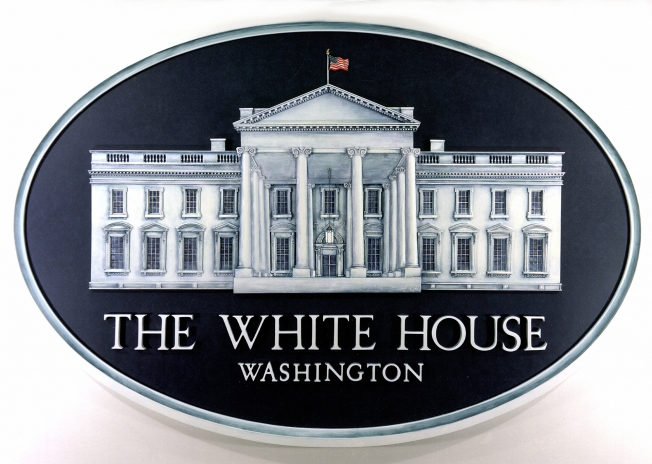Table Of Content

The presiding officer is the Speaker of the House, who is elected by the members thereof. Other floor leaders are chosen by the Democratic Caucus or the Republican Conference, depending on whichever party has more voting members. In most states, major party candidates for each district are nominated in partisan primary elections, typically held in spring to late summer. In some states, the Republican and Democratic parties choose their candidates for each district in their political conventions in spring or early summer, which often use unanimous voice votes to reflect either confidence in the incumbent or the result of bargaining in earlier private discussions. Exceptions can result in so-called floor fights—convention votes by delegates, with outcomes that can be hard to predict. Especially if a convention is closely divided, a losing candidate may contend further by meeting the conditions for a primary election.
Office
Thus, with its potential to frustrate presidential appointments, the Senate is more powerful than the House. If they do, the bill does not become law unless each House, by a two-thirds vote, votes to override the veto. The largest committee of the House is the Committee of the Whole, which, as its name suggests, consists of all members of the House.

Joint Subcommittee Hearing
Also referred to as a congressman or congresswoman, each representative is elected to a two-year term serving the people of a specific congressional district. Among other duties, representatives introduce bills and resolutions, offer amendments and serve on committees. The number of representatives with full voting rights is 435, a number set by Public Law 62-5 on August 8, 1911, and in effect since 1913. The number of representatives per state is proportionate to population.
Democratic Caucus Vice Chair
Rep. John Lewis Honored at Capitol house.gov - House.gov
Rep. John Lewis Honored at Capitol house.gov.
Posted: Mon, 27 Jul 2020 07:00:00 GMT [source]
The states of Washington and California use a similar (though not identical) system to that used by Louisiana. The department’s final rule, which will go into effect on July 1, 2024, will increase the standard salary level that helps define and delimit which salaried workers are entitled to overtime pay protections under the FLSA. Whether working on Capitol Hill or in his / her congressional district, a representative’s schedule is extremely busy. Often beginning early in the morning with topical briefings, most representatives move quickly among caucus and committee meetings and hearings. They vote on bills, speak with constituents and other groups, and review constituent mail, press clips and various reports.
The Secretary reiterated that the United States will continue to take necessary actions to defend our interests and values, and those of our allies and partners, including preventing advanced U.S. technologies from being used to undermine our national security and economy without unduly limiting trade or investment. One of the basic principles of the American workplace is that a hard day’s work deserves a fair day’s pay. A cornerstone of that promise is the Fair Labor Standards Act’s (FLSA) requirement that when most workers work more than 40 hours in a week, they get paid more. The Department of Labor’s new overtime regulation is restoring and extending this promise for millions more lower-paid salaried workers in the U.S.
Innovation, Data, and Commerce
The Republicans retook the House in 2011, with the largest shift of power since the 1930s.[14] However, the Democrats retook the house in 2019, which became the largest shift of power to the Democrats since the 1970s. In the 2022 elections, Republicans took back control of the House, winning a slim majority. The late 19th and early 20th centuries also saw a dramatic increase in the power of the speaker of the House. The rise of the speaker's influence began in the 1890s, during the tenure of Republican Thomas Brackett Reed.
Whips assist leadership in managing their party's legislative program on the House floor. A party caucus or conference is the name given to a meeting of or organization of all party members in the House. The rules of the House generally address a two-party system, with a majority party in government, and a minority party in opposition.
This latter committee, created in the 110th Congress and reauthorized for the 111th, has no jurisdiction over legislation and must be chartered anew at the start of every Congress. The House also appoints members to serve on joint committees, which include members of the Senate and House. Some joint committees oversee independent government bodies; for instance, the Joint Committee on the Library oversees the Library of Congress.
Standing committees also oversee the departments and agencies of the executive branch. In discharging their duties, standing committees have the power to hold hearings and to subpoena witnesses and evidence. After the conference chair, there are differences between each party's subsequent leadership ranks.
After eight years of a more limited confederal government under the Articles, numerous political leaders such as James Madison and Alexander Hamilton initiated the Constitutional Convention in 1787, which received the Confederation Congress's sanction to "amend the Articles of Confederation". Overtime protections have been a critical part of the FLSA since 1938 and were established to protect workers from exploitation and to benefit workers, their families and our communities. Strong overtime protections help build America’s middle class and ensure that workers are not overworked and underpaid.
After the Democratic caucus chair is the campaign committee chair (Democratic Congressional Campaign Committee), then the co-chairs of the Steering Committee. For the Republicans it is the chair of the House Republican Policy Committee, followed by the campaign committee chairman (styled as the National Republican Congressional Committee). Representatives are usually identified in the media and other sources by party and state, and sometimes by congressional district, or a major city or community within their district. For example, Democratic representative Nancy Pelosi, who represents California's 11th congressional district within San Francisco, may be identified as "D–California", "D–California–11" or "D–San Francisco". The Secretary addressed the PRC’s non-market economic policies and practices that distort trade or threaten our national security and raised concern about the global economic consequences of PRC industrial overcapacity. He advocated for fair treatment and a level playing field for U.S. workers and business.
Currently, there are five delegates representing the District of Columbia, the Virgin Islands, Guam, American Samoa, and the Commonwealth of the Northern Mariana Islands. House leadership includes the speaker, majority and minority leaders, assistant leaders, whips and a party caucus or conference. The speaker acts as leader of the House and combines several institutional and administrative roles. Majority and minority leaders represent their respective parties on the House floor.
It moved to Philadelphia in 1790 and then to Washington, DC, in 1800. The House’s committees consider bills and issues and oversee agencies, programs, and activities within their jurisdictions. The Constitution provides that the Senate's "advice and consent" is necessary for the president to make appointments and to ratify treaties.
As a result of this disruption on campus, supported by some faculty members, many students have been prevented from safely attending class, the main library, and from leaving their dorm rooms in an apparent violation of Title VI of the Civil Rights Act. The House has 435 members, the number representing each state is determined by population. Official websites use .govA .gov website belongs to an official government organization in the United States. Get answers to frequently asked questions about committees from the Clerk of the House.

No comments:
Post a Comment